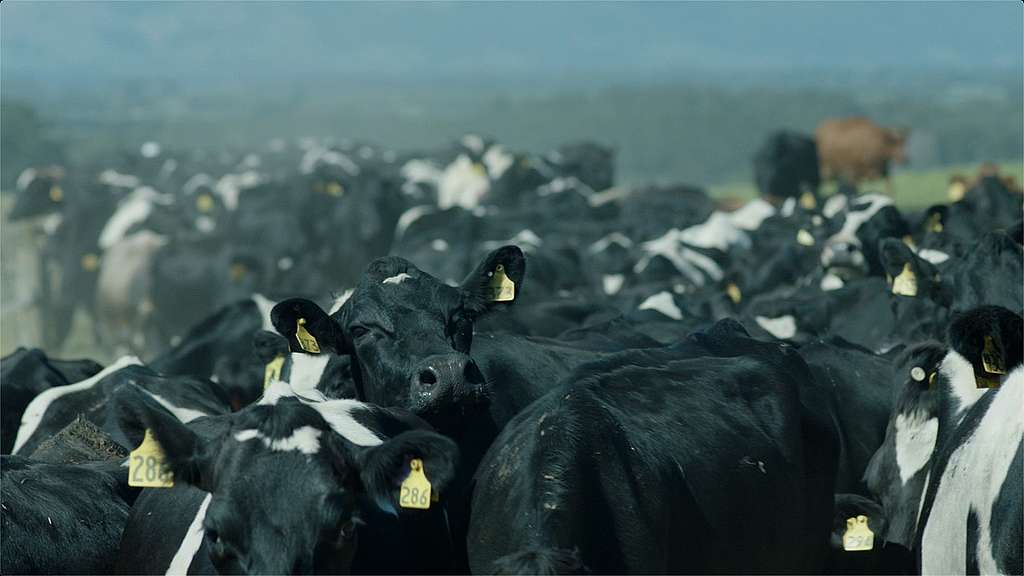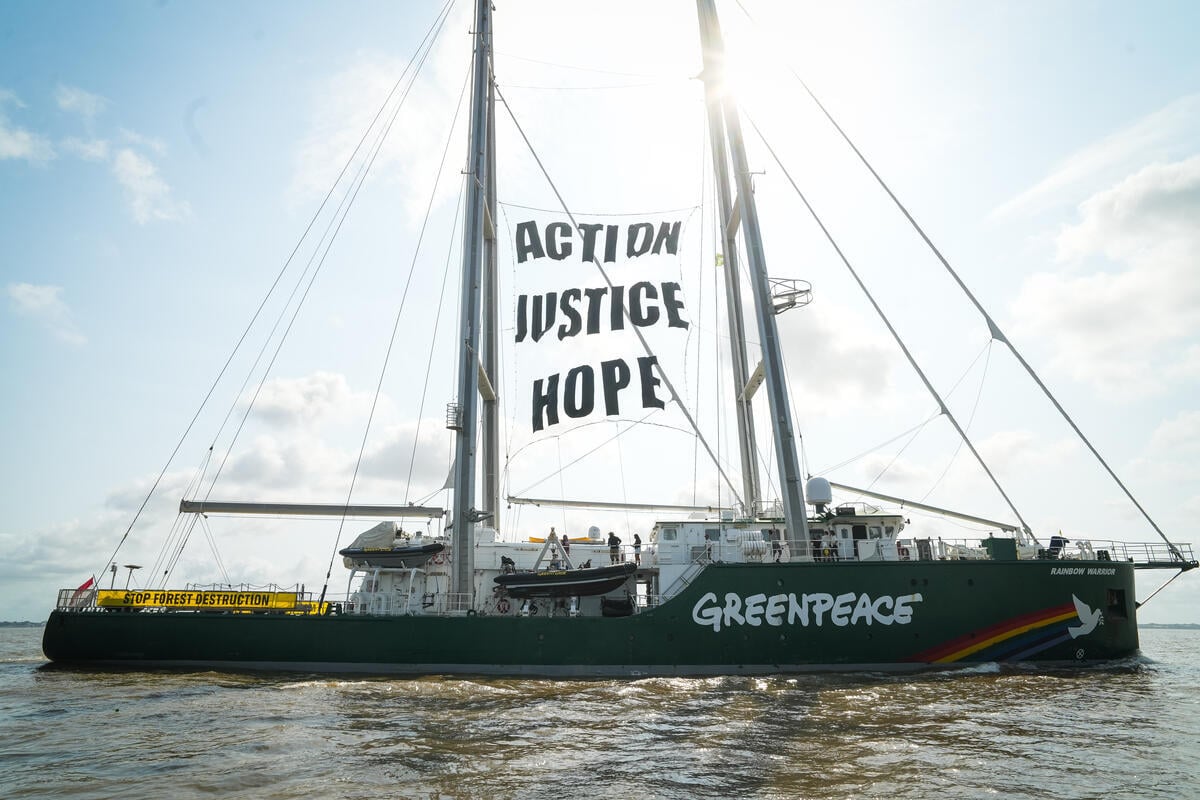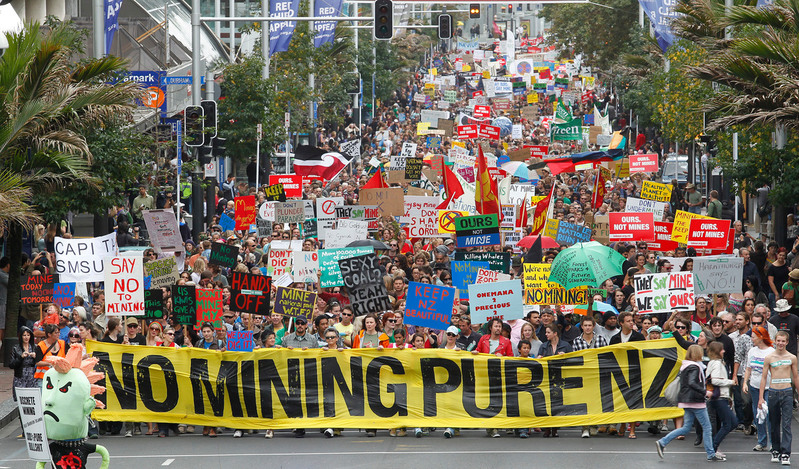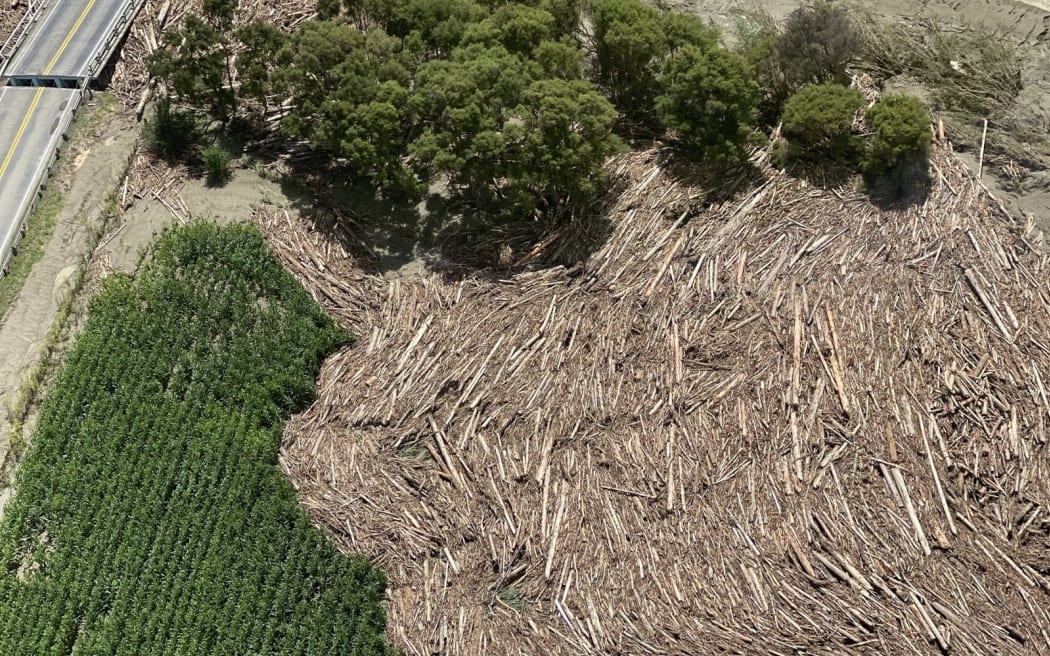The cost of living crisis has been in the headlines a lot lately, and so it should be. As companies have hiked up the price of fuel, food and electricity, families here in Aotearoa and around the world are facing increasing financial hardship.
What is getting a little less attention is that while people are struggling to meet their basic needs, there are a handful of companies that are making record-breaking, eye-watering profits.
Big oil and big agri-business have exploited the disruption caused by the pandemic and the Russian invasion of Ukraine, using it to increase their prices and make billions. All that extra money for those record profits is coming at the expense of everyday people who are just trying to heat their homes, travel to their jobs and put food on the table.
Big oil and big agri-business are currently accumulating and hoarding billions of dollars in the midst of a cost of living crisis. You might have noticed that they are the very same industries that are responsible for causing the climate crisis. That’s no coincidence.
Fossil Fuels driving the cost of living crisis
For decades, Governments have chosen not to decarbonise society, and that’s kept us reliant on fossil fuels. So when the oil companies put up the price of oil, the price of pretty much everything else goes up too. It’s not just about the price at the petrol pump.
Big agri-chemical companies like Ravensdown and Ballance have got many farmers hooked on synthetic nitrogen fertiliser, which is made from fossil fuel gas. When gas is more expensive, the companies hike up the price of the fertiliser on which they have made farmers dependent, and food gets more expensive.
This dangerous reliance on fossil fuels and the climate pollution it generates is making life more precarious. Floods and heat waves have killed thousands of people already this year, and the unchecked profiteering of big oil companies is pushing more people into poverty. The head of the UN has called the record profits in the oil industry “immoral” and a case of “grotesque greed”.
As millions of people around the world bear the brunt of surging prices at the petrol pump, multinational oil companies BP, ExxonMobil, Chevron, Shell and TotalEnergies together took more than 91 and a half billion dollars in profit in just four months this year.
Catastrophic floods have killed more than a thousand people in Pakistan this year, devastating a country that emits less than 1% of global climate pollution. Meanwhile BP made $14 billion in just four months, its biggest windfall profit in 14 years.
Corporate windfall profits while everyday people pay the price
While New Zealanders struggled to fill the car up, the profits of the three major petrol companies here rose sharply. Last year, BP NZ took $230 million after-tax profit, Mobil NZ took $183m, while Z Energy took $92m in just six months.
As floods destroyed homes in Nelson, synthetic fertiliser company – Ravensdown, which sells the chemical synthetic nitrogen fertiliser that emits more climate pollution than NZ’s entire domestic aviation industry, pulled in $95 million profit, which its CEO called “one of our best ever results.”
As a record-breaking heatwave swept Europe killing more than 11,000 people in France alone, the global fertiliser industry was set to post its biggest quarterly profits in years.
While families are having to turn the heaters off in the face of unmanageable energy bills, New Zealand’s three big energy companies made a combined annual net profit of $1.35 billion in 2021/21. Genesis Energy’s profits increased by nearly 600%, while Mercury’s rose 42%.
These huge earnings are known as ‘windfall’ profits – which are a sudden and unexpected spike in earnings, often caused by a one-time event that is out of the norm – like a pandemic or a war.
Some are suggesting these windfall profits should be taxed and used for the greater good. The European Union has just detailed plans to raise 140 billion euros by skimming revenues from low-cost electricity generators and making fossil fuel firms share windfall profits.
Putting people before profit
It’s time for the Ardern Government to rein in the companies that are pushing people into poverty and profiteering off pollution. Companies like BP, Ravensdown and Fonterra need to start paying for the costs that their climate pollution is inflicting on people, like those in Nelson who lost their homes to devastating climate floods.
One option that has been proposed is a ‘windfall tax’ that could be applied to recover some of the profits from Covid recovery bailouts and fossil fuel driven profits alike.
More importantly though, now more than ever the Government needs to wean our towns and farms off of fossil fuels, so that the cost of living doesn’t continue to be pushed up by the “grotesque greed” of multinational oil companies.
Dealing with the cost of living crisis looks like investing in public transport so that people aren’t forced into their cars, which are getting more expensive to run.
It looks like investing in solar and renewable energy, and building more energy efficient housing so that everyone stays warm in winter, without it costing the earth.
It looks like phasing out synthetic fertiliser and supporting farmers to shift to regenerative organic farming, so that our food system is resilient and less affected by global shocks, like pandemics and war.
It’s time the Government took these steps to decarbonise Aotearoa and get our farms off synthetic fertiliser, so that we can get out of this cost of living crisis and fix the climate crisis while we are at it.

Sign on now to call on the New Zealand Govt to ban chemical nitrogen fertiliser.
Take Action



